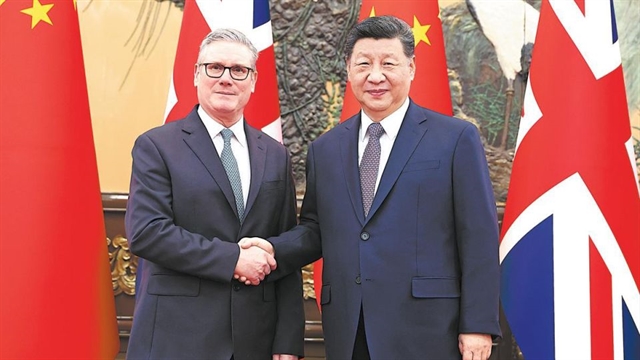 World
World

SEOUL — South Korean President Moon Jae-in struck a conciliatory tone towards Japan on Thursday, offering to "join hands" if Tokyo chooses dialogue as relations between the two dip to fresh lows.
Seoul and Tokyo are mired in long-running disputes over Japan's use of forced labour in the first half of the 20th century.
The two neighbours have been embroiled in a tit-for-tat trade war that saw them remove each other from their lists of trusted trading partners this month, raising concerns over global supply chains.
That came after Tokyo imposed restrictions on exports crucial to tech giants such as Samsung last month, following a series of South Korean court rulings ordering Japanese firms to pay for wartime labour.
But Moon sought to dial down the temperature on Thursday, saying Seoul was willing to work with Tokyo to secure "fair trade and cooperation" in the region.
"If Japan chooses the path of dialogue and cooperation, we will gladly join hands," Moon said in a speech to mark the anniversary of Korea's liberation from Japan's 1910-45 rule.
Dressed in a light blue hanbok, Moon -- who earlier this month vowed South Korea will "never be defeated again by Japan" -- insisted that Seoul has "not dwelt on the past".
"Reflecting on the past does not mean clinging to the past but overcoming what happened and moving toward the future," said Moon.
"We hope that Japan will play a leading role together in facilitating peace and prosperity in East Asia while it contemplates a past that brought misfortune to its neighbouring countries."
At the centre of the latest dispute is Japan's use of forced labour during its 1910-1945 rule of the Korean peninsula -- an issue that Tokyo says was settled under the 1965 treaty that re-established diplomatic ties.
Under the treaty, a package of about US$800 million in grants and cheap loans was provided to the former colony in compensation.
The dispute has raised concerns over the possible impact on global supply chains and the potential implications on the security cooperation between the two US allies in the face of North Korean missile tests.
Analysts say that politicians on both sides are seeking to exploit the issue for domestic political purposes. — AFP